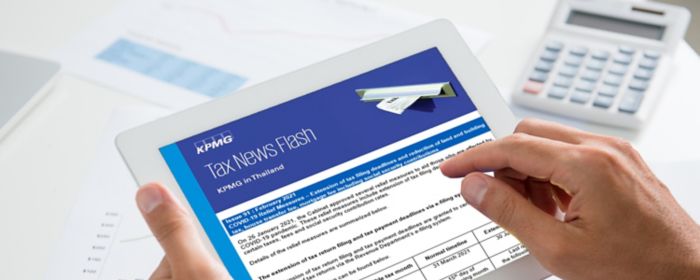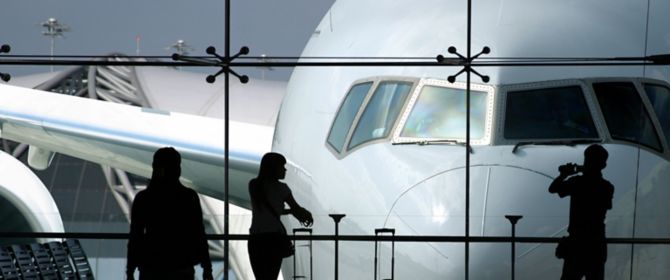The Thai government announced new visa measures1,2,3 designed to promote tourism and stimulate Thailand’s economy, starting from July 15, 2024.
WHY THIS MATTERS
Overall, these measures aim to augment the appeal of Thailand as a place to visit, and to live and work.
The Destination Thailand Visa (DTV) enhances opportunities for digital nomads, remote workers, and long-term travellers seeking to live and work in Thailand.
Also, the nationals of more countries will now benefit from the broader eligibility and options for staying in Thailand conferred by the new measures for the Visa on Arrival (VOA), and a new 60-day Visa Exemption.
They also help facilitate – from a process perspective – entry and exit of foreign travellers from the eligible countries, reducing queues at immigration points of entry, and in many cases, obviating the need to secure visa extensions.
Highlights
- Destination Thailand Visa (DTV): This new five-year visa will grant a period of stay of up to 180 days per visit, with multiple re-entries, to digital nomads, remote workers, and those participating in activities such as traditional Thai martial arts (Muay Thai), Thai cooking classes, sports training, medical treatment, seminars, and music events, etc., including the spouse and dependent children of the DTV holder.
- Thailand's New 60-Day Visa Exemption: The stay of tourists and short-term business visitors has now been extended to up to 60 days (from 30 days), and the exemption list has been expanded from 57 to 93 countries, including Cambodia, the Dominican Republic, and Mexico.
- Increased Visa on Arrival (VOA) Eligibility: The list of countries whose travelers are eligible for the Visa on Arrival (VOA) — which allows stays for up to 15 days for tourism purposes — has been expanded from 19 to 31 countries, including Armenia, Ethiopia, and Paraguay.
More Details
Destination Thailand Visa (DTV)
- The DTV is intended to attract skilled workers contributing to the local economy and fostering a community of long-term residents.
- For a visa fee of 10,000 Thai baht, the DTV is a 5-year multiple-entry visa, permitting the holder to stay in Thailand for up to 180 days per entry, with an option to extend each stay for an additional 180 days through the Thai Immigration Bureau.
- After a maximum stay of 180 days plus an additional 180 days, DTV holders must depart the country, and can re-enter Thailand on the same DTV visa (within the 5-year validity period of the visa).
- For DTV visa applications for the purpose of remote work, an employment contract or employment certificate from outside of Thailand is required — or a professional portfolio showcasing the status of the digital nomad, remote worker, foreign talent/specialist, or freelancer.
- For DTV visa applications for the purpose of participating in activities, evidence is required, such as confirmation of the applicant’s booking, or a letter confirming an appointment from a hospital / medical center.
- Financial evidence, e.g. a bank statement, payslip, or sponsorship letter, is required to demonstrate that the supporter or guarantor has an amount of at least 500,000 Thai baht available.
- The spouse, and each child under 20 years old, of a DTV visa holder will also be granted a visa as a dependent.
60-day Visa Exemption
- Under this visa exemption, foreign nationals of 93 countries are allowed to stay in Thailand for purposes of tourism and short-term business engagements, for a period of up to 60 days without a visa.
- Eligible countries: Albania, Andorra, Australia, Austria, Belgium, Bahrain, Bhutan, Brazil, Brunei, Bulgaria, Cambodia, Canada, Czech Republic, China, Colombia, Croatia, Cuba, Cyprus, Denmark, Dominica, Dominican Republic, Ecuador, Estonia, Fiji, Finland, France, Georgia, Germany, Greece, Guatemala, Hong Kong, Hungary, Iceland, India, Indonesia, Ireland, Israel, Italy, Jamaica, Japan, Jordan, Kazakhstan, South Korea, Kosovo, Kuwait, Laos, Latvia, Liechtenstein, Lithuania, Luxembourg, Macao, Malaysia, Maldives, Malta, Mauritius, Mexico, Monaco, Mongolia, Morocco, Netherlands, New Zealand, Norway, Oman, Panama, Papua New Guinea, Peru, Philippines, Poland, Portugal, Qatar, Romania, Russia, San Marino, Saudi Arabia, Singapore, Slovakia, Slovenia, Spain, Sri Lanka, South Africa, Sweden, Switzerland, Taiwan, Tonga, Trinidad and Tobago, Türkiye, Ukraine, United Arab Emirates, United Kingdom, United States, Uruguay, Uzbekistan, and Vietnam.
- This measure is expected to reduce long queues at immigration facilities and the need for visa extension.
Visa on Arrival (VOA)
- Nationals from 31 countries may apply at immigration checkpoints for a “visa on arrival” (VOA) for the purpose of tourism, for a period not exceeding 15 days.
- Eligible countries: Armenia, Belarus, Bulgaria, Bhutan, Bolivia, China, Costa Rica, Cyprus, El Salvador, Ethiopia, Fiji, Georgia, India, Kazakhstan, Kyrgyzstan, Malta, Mexico, Namibia, Nauru, Papua New Guinea, Paraguay, Romania, Russia, Saudi Arabia, Serbia, Seychelles, Taiwan, Tunisia, Uzbekistan, Vanuatu, and Venezuela.
KPMG INSIGHTS
We, KPMG in Thailand, recommend that questions about eligibility, securing the appropriate documentation to support applications, making applications, and next steps be directed to the traveller’s usual immigration counsel or to a member of our Immigration team at KPMG in Thailand (see the Contact Us section).
FOOTNOTES:
- Introducing the new “Destination Thailand Visa (DTV)”, “The Royal Gazette, re: announcing allowing foreigners to stay in the Kingdom for tourism purposes and remote work as a special case.”
- Granting visa exemptions for passport holders from 90 countries and territories for short-term visits up to 60 days, “The Royal Gazette, re: Announcing countries/territories whose nationals are entitled to visa exemption for the purpose of tourism and short-term business engagements, for a period not exceeding 60 days.”
- Increasing the number of countries/territories whose nationals are entitled to Visa on Arrival (VOA) from 19 to 31 countries/territories, “The Royal Gazette, re: Announcing countries/territories whose nationals are entitled to Visa on Arrival (VOA) may apply for a Visa on Arrival (VoA) at immigration checkpoints”
Key contacts
Connect with us
- Find office locations kpmg.findOfficeLocations
- kpmg.emailUs
- Social media @ KPMG kpmg.socialMedia



